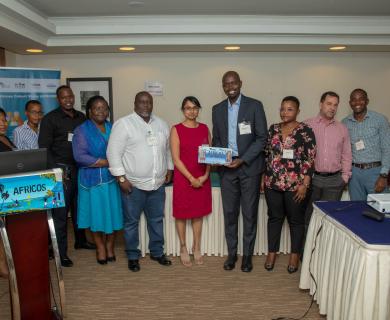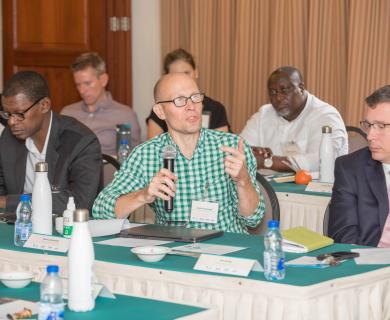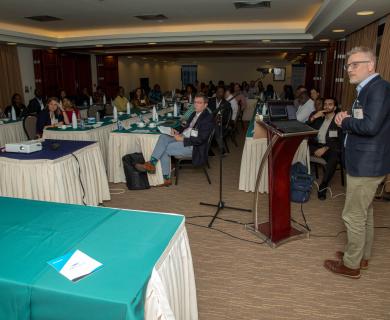November 2, 2023
The African Cohort Study (AFRICOS) celebrated its 10th Anniversary on Wednesday 1st November, 2023, with a Research Symposium to review key findings from the study, share ongoing analyses, and discuss plans under the theme titled, “Progress and Future Directions.”
AFRICOS is a long-term cohort study conducted at multiple African sites to evaluate HIV prevention, care, and treatment services offered through local facilities, initiated by the U.S. Military HIV Research Program (MHRP) at the Walter Reed Army Institute of Research (WRAIR), and funded by the U.S. President’s Emergency Plan for AIDS Relief (PEPFAR).
Study findings impact HIV policy and PEPFAR programming, including evidence-based antiretroviral therapy (ART) recommendations. Currently, the study is being executed in PEPFAR-supported clinics in Nigeria, Uganda, Kenya, and Tanzania.s.
This symposium took place at the White Sands Hotel in Dar es Salaam Tanzania, and it brought together HIV researchers and collaborators from MHRP, PEPFAR, WRAIR, USAID, CDC, HJFMRI, and NIMR, who shared their insights on next steps for the planned 15-year study.
During welcoming remarks to symposium attendees, MHRP Director Col. Julie Ake said MHRP initiated this large, long-term cohort study to help HIV researchers capture the broader understanding of the overall health of HIV patients, inform decisions, and share of best practices. To date, the study has enrolled more than 3,700 participants for the study.
The event was also attended by the Chief Science Officer of PEPFAR, Mike Reid, who presented PEPFAR’s Science Priorities and shared that approximately 20 percent of people living with HIV are not on treatment, and this proportion is expected to grow.
“Despite remarkable progress towards 95-95-95,gaps remain along the care cascade. In many settings, these gaps align with tracers of health inequity, such as lower income quintiles, rural vs. urban, etc. As researchers we need to identify health inequities and address them specifically for populations disproportionately affected by HIV,” added Reid.
Participants were also able to discuss how COVID-19 had affected participants’ HIV treatment. Clinics observed decreases in clinic visit adherence early in the pandemic, and an increase in viral suppression later. Other areas discussed during the AFRICOS symposium included challenges to accommodate youth in the study, issues of Immune non-responders, diabetes and hypertension treatment gaps, and causes for treatment interruption among patients.


